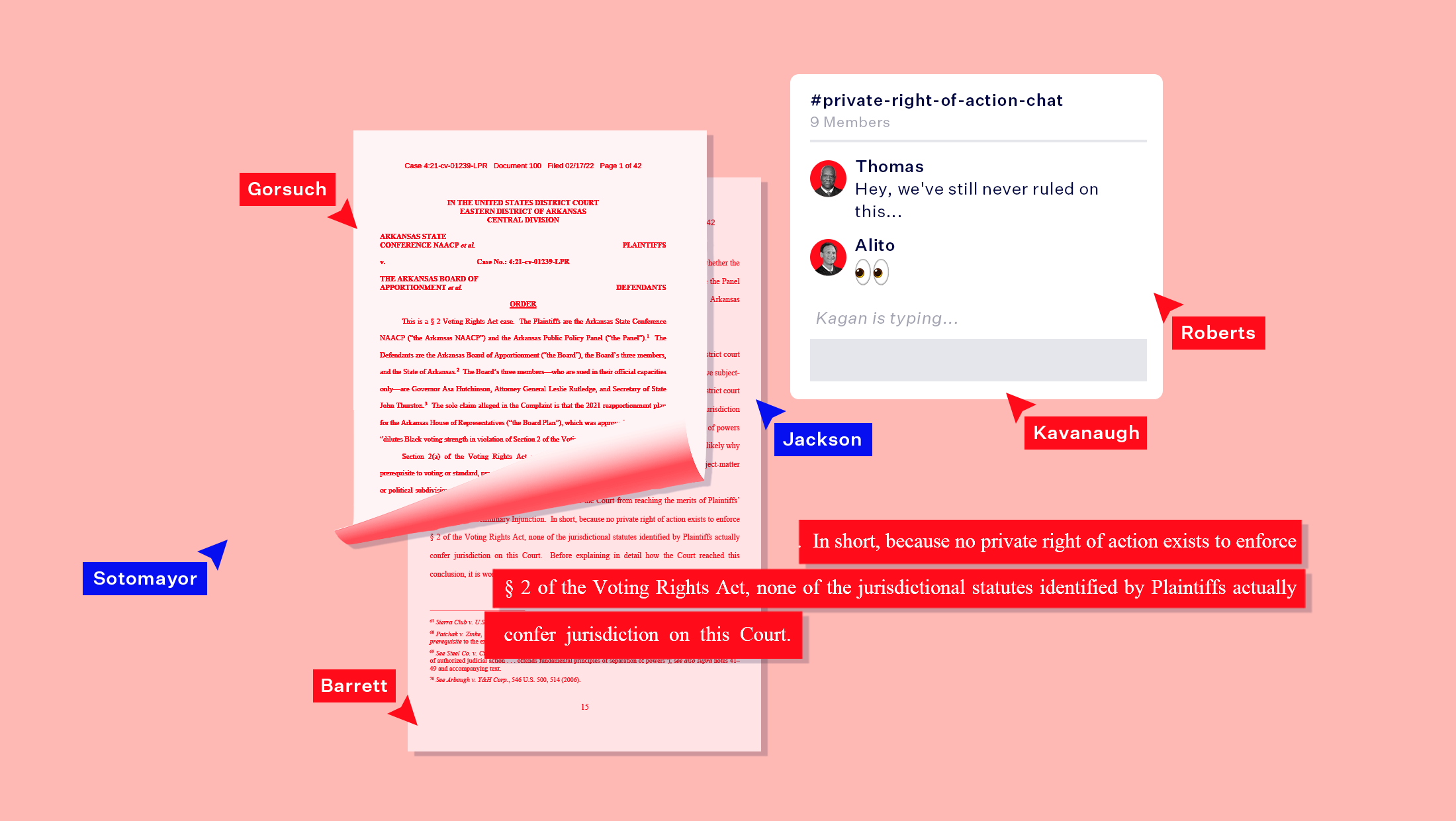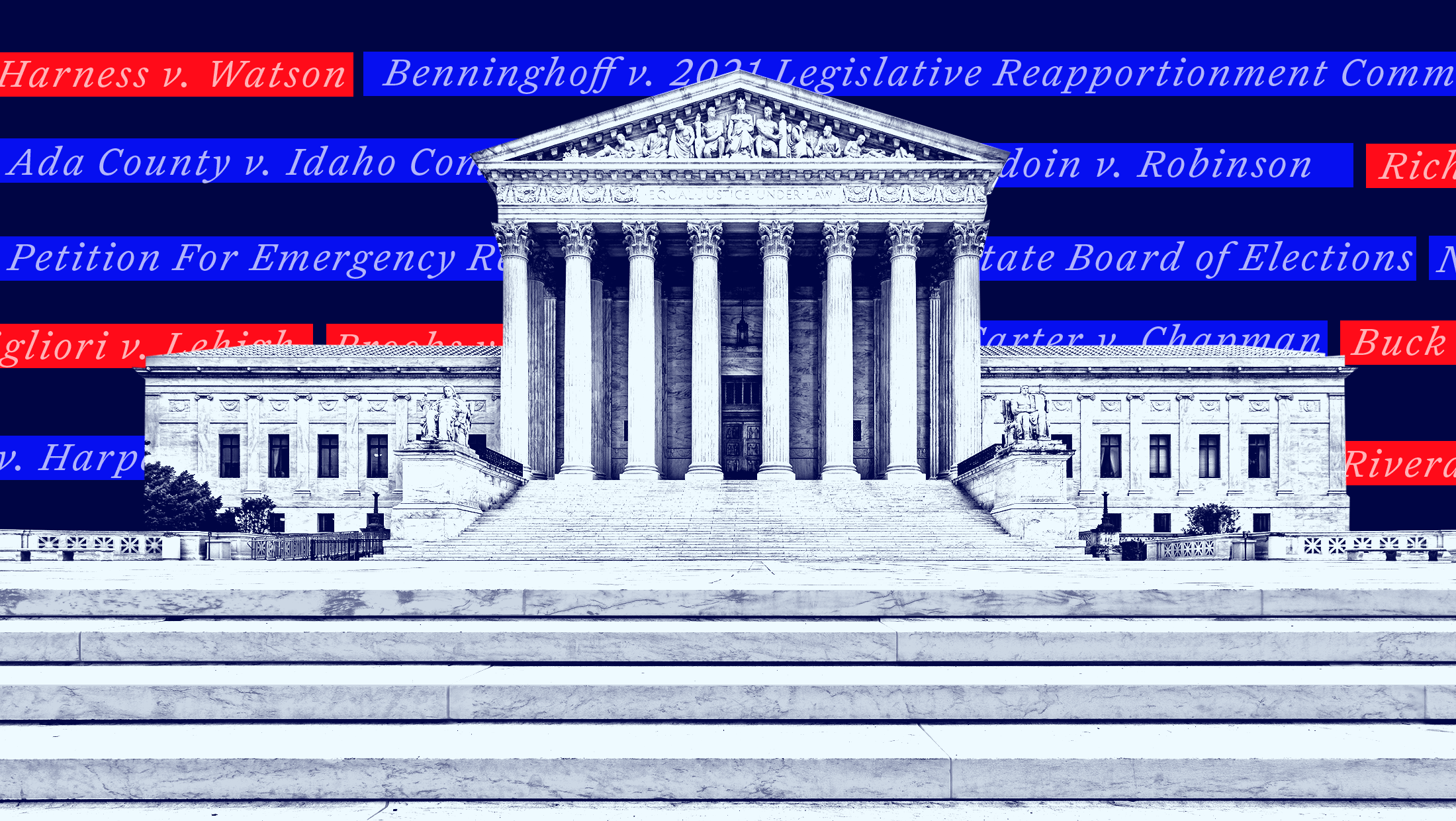These Sheriffs Are Refusing To Enforce State Law
Allowing sheriffs to dictate the implementation of laws — like we saw in Illinois and New Mexico — subverts the democratic will of the people.

Allowing sheriffs to dictate the implementation of laws — like we saw in Illinois and New Mexico — subverts the democratic will of the people.

Already, we can see the first rumblings of the next Republican legal strategies echoing in lawsuits, court filings and legal opinions across the country.

The U.S. Supreme Court’s 2022-23 term ended on June 30, with the release of the final opinions and the last order list. The term proved to be an important one for democracy, with two landmark voting rights cases and a slew of smaller decisions influencing our elections.

On Monday, July 10, House Republicans unveiled the American Confidence in Elections (ACE) Act, a sweeping “election integrity” bill, which would recommend policy changes nationwide and overhaul elections in Washington, D.C.
Today, the Court ruled that state legislatures aren’t free to draw congressional maps free from constraints. In doing so, the Court turned back a major threat to American democracy that could have upended elections across the country.

On Thursday, June 22, the U.S. House Financial Services and General Government Committee released a budget proposal that would eliminate federal funding for election departments.
Over the weekend, Texas Gov. Greg Abbott (R) took action on two election bills related to ballot access for voters with disabilities.
On Thursday, May 26, the Texas Legislature passed Senate Bill 477, a bill that would make voting easier for individuals with disabilities.
A long-time advocate of false election claims, Mitchell aided former President Donald Trump’s efforts to overturn the 2020 election and has become a key player among election-denying activists.

Rather than renounce the conspiratorial thinking and falsehoods that led to Jan. 6, Pence has spent the last two years affirming Republican fears about voter fraud.
